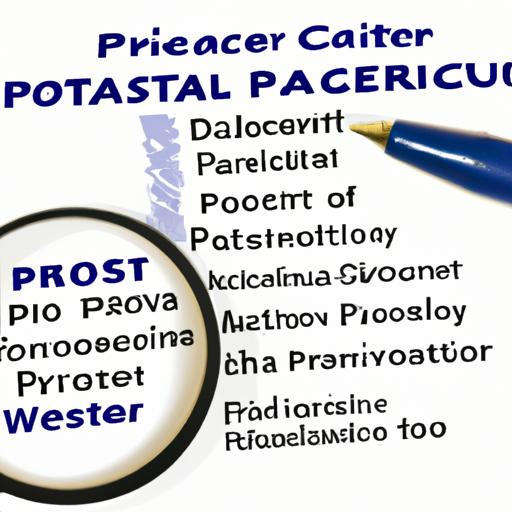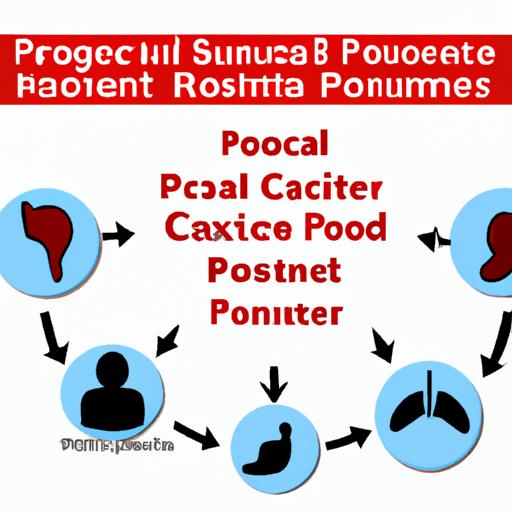In the world of cancer detection, precision is key. However, a recent study has revealed a troubling flaw in the accuracy of one common test for prostate cancer. This test, while effective in identifying many cases of the disease, fails to detect some of the most aggressive forms. What does this mean for patients and healthcare providers? Let’s delve into the details of this eye-opening study and its implications for the future of prostate cancer diagnosis.
The limitations of current prostate cancer testing methods
Current prostate cancer testing methods have proven to be limited in detecting some aggressive forms of the disease, as revealed in a recent study. The study found that existing tests, such as the PSA test, may miss up to 15% of aggressive prostate cancers, leading to delayed diagnosis and potentially poorer outcomes for patients. This highlights the urgent need for more accurate and reliable screening tools to identify high-risk prostate cancer cases early.
Furthermore, the limitations of current testing methods can also result in unnecessary biopsies for some patients, causing discomfort and anxiety without providing meaningful insights into their true cancer status. The study underscores the importance of improving the sensitivity and specificity of prostate cancer testing, in order to effectively distinguish between indolent and aggressive forms of the disease. Until advancements are made in this area, it is crucial for healthcare providers to closely monitor at-risk individuals and consider additional testing options for those suspected of having aggressive prostate cancer.

Identifying and addressing the risks associated with undetected aggressive prostate cancer
Recent research has shed light on the limitations of current prostate cancer tests in detecting aggressive forms of the disease. While these tests are effective in identifying many cases of prostate cancer, they may fail to detect some aggressive forms that require immediate treatment. This can lead to delays in diagnosis and treatment, ultimately affecting patient outcomes.
It is crucial for healthcare professionals to be aware of the risks associated with undetected aggressive prostate cancer and take proactive measures to address them. This includes staying informed about the latest developments in prostate cancer testing and treatment, as well as working closely with patients to monitor their health and detect any signs of disease progression. By staying vigilant and proactive, we can help ensure that all patients receive the timely and appropriate care they need to combat aggressive prostate cancer.

Challenges in developing more accurate and reliable testing strategies
One of the most pressing challenges in improving testing strategies for prostate cancer is the failure to detect some aggressive forms of the disease. A recent study has shown that the current testing methods may not be as accurate and reliable as previously believed. This revelation highlights the need for innovation and development in the field of cancer diagnostics.
Another challenge that researchers are facing is the variability in test results among different laboratories and medical facilities. This inconsistency can lead to misdiagnoses and delayed treatment, ultimately affecting patient outcomes. It is crucial for the medical community to collaborate and standardize testing protocols to ensure more accurate and reliable results for patients. The quest for more effective testing strategies continues, as scientists strive to improve early detection and treatment options for prostate cancer patients.

Recommendations for men at risk of aggressive prostate cancer
It is essential for men at risk of aggressive prostate cancer to be aware that the current prostate cancer test may not always detect these more dangerous forms. A recent study has shown that the standard prostate-specific antigen (PSA) test may miss aggressive prostate cancer in some cases, leading to delayed diagnosis and potentially poorer outcomes.
For men concerned about their prostate health, it is important to consider additional screening methods beyond the PSA test. Some include:
- Regular screenings: Discuss with your healthcare provider about more frequent screenings or alternative tests such as MRI or genetic testing.
- Healthy lifestyle: Maintaining a healthy diet and exercising regularly can help reduce the risk of developing aggressive prostate cancer.
- Knowing family history: Those with a family history of prostate cancer should be particularly vigilant and discuss screening options with their doctor.
Wrapping Up
In conclusion, while prostate cancer testing has made significant advancements in detecting the disease early on, it is crucial to be aware of its limitations. This study sheds light on the fact that some aggressive forms of prostate cancer may go undetected by current testing methods. As more research is conducted and technology continues to evolve, hopefully, new strategies will be developed to improve the accuracy of prostate cancer detection. Stay informed and proactive about your health, and consult with your healthcare provider about the best screening options available to you. Let’s continue to strive for advancements in the field of cancer detection to ultimately save more lives and improve outcomes for those affected by this disease.



